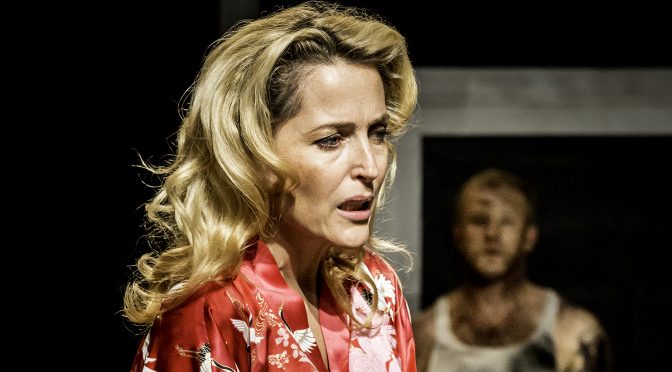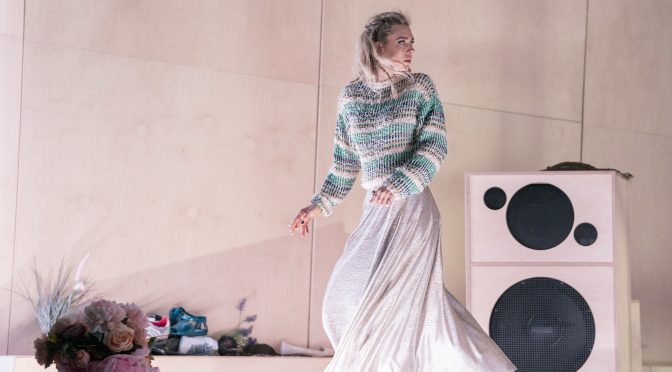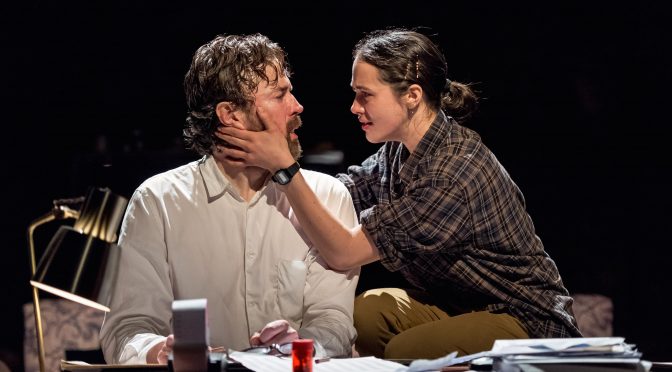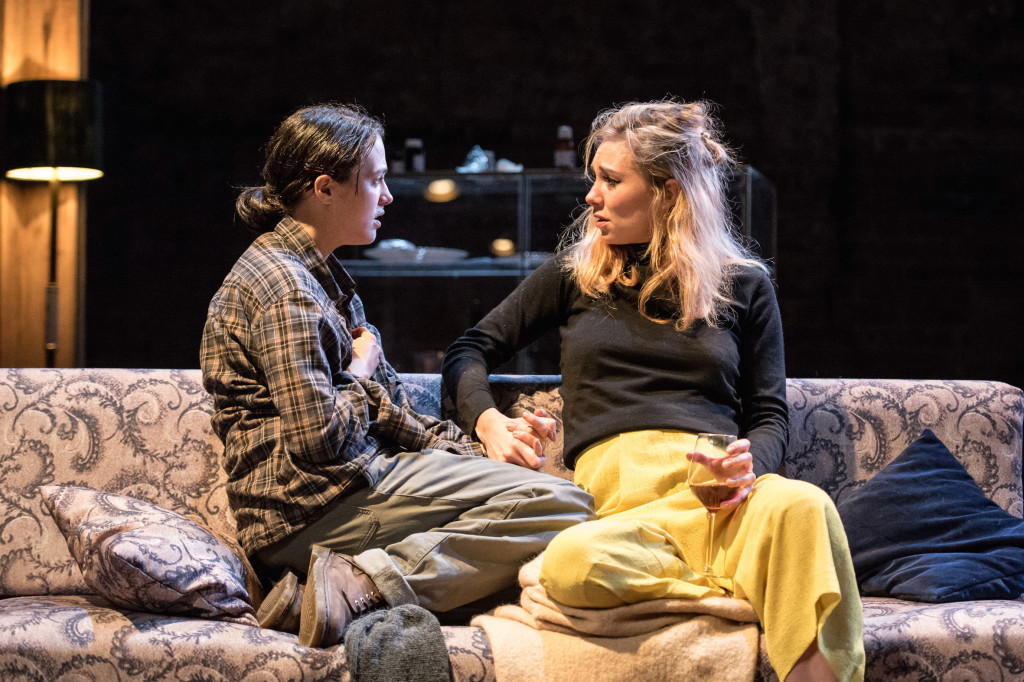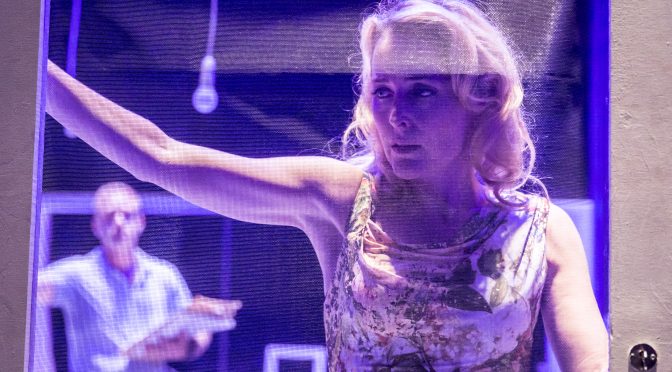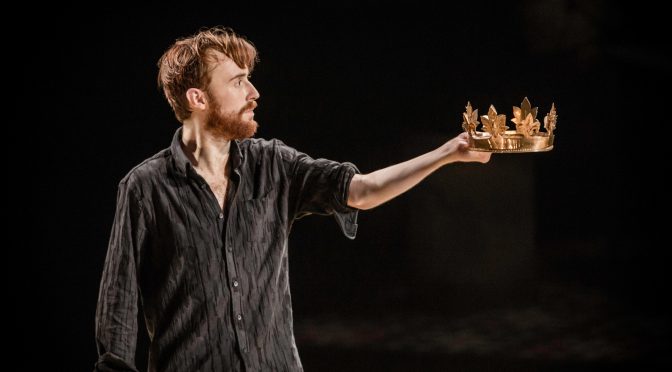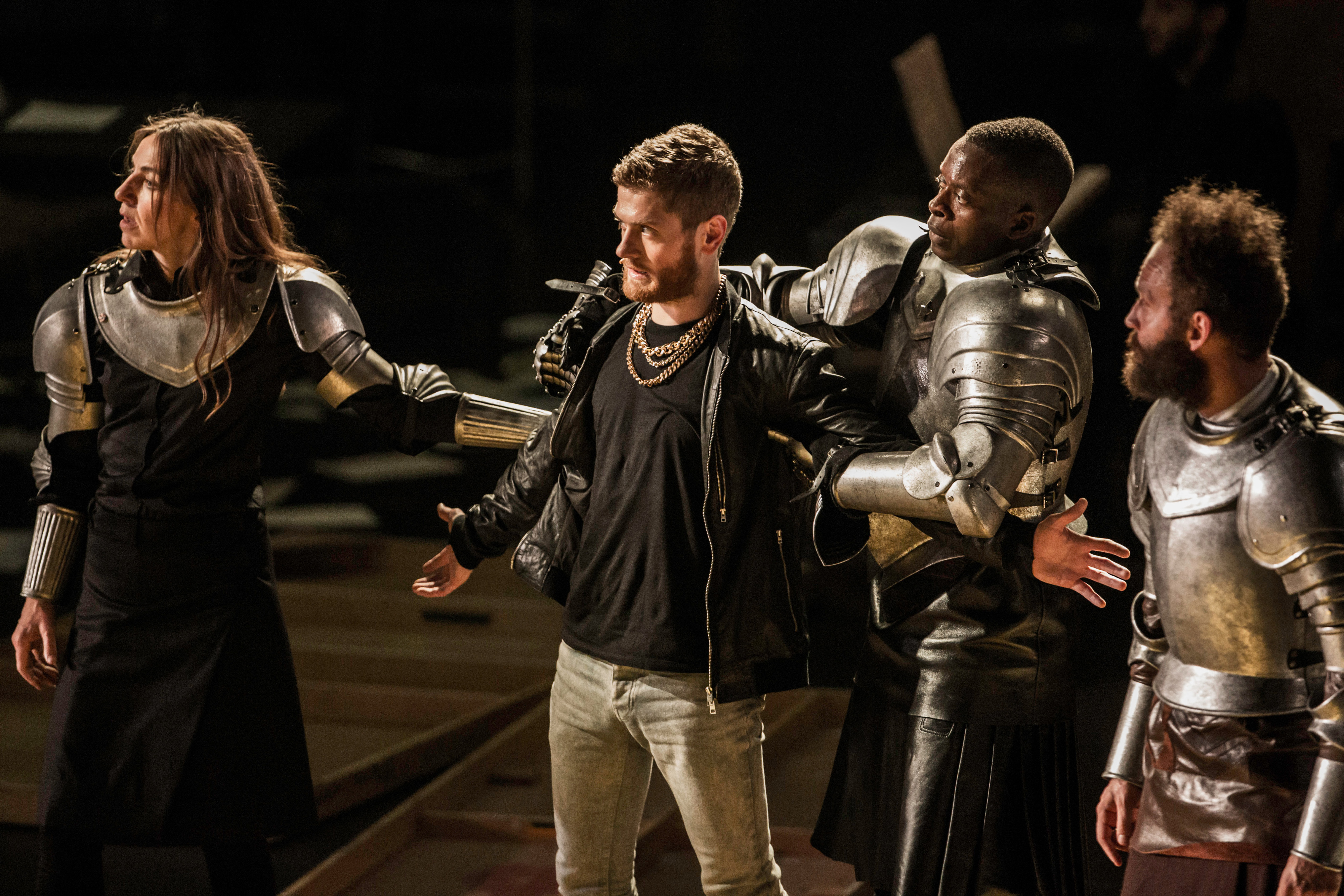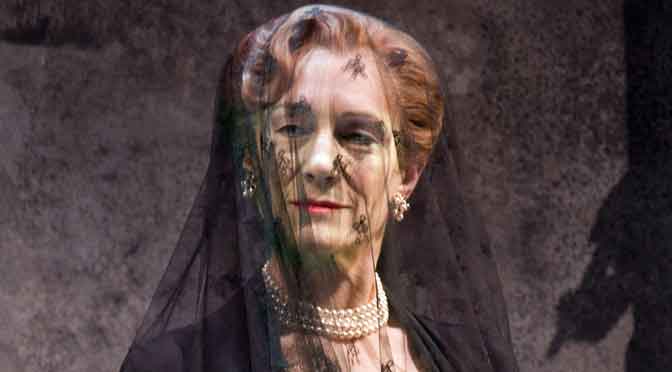Provided during lockdown via the National Theatre, Benedict Andrews’ acclaimed production of the Tennessee Williams classic was a big hit for the Young Vic back in 2014: don’t forget there are two places to consider donating to this week! Intense and innovative, it reflects the spirit of its author and is a strong revival of a classic.
The legendary role of Blanche DuBois, the archetypal Williams heroine – a deluded, down-at-heel former Southern Belle – makes a star role for Gillian Anderson. The issue with such an iconic part is the struggle to make her appear new, and Anderson achieves this with a fraught interpretation full of pain that focuses on alcoholism and mental health.
Blanche is charming and sexy. Anderson makes her funny, too. But she is also imperious and her arrival and stay with her sister and brother-in-law, Stella and Stanley, along with a romance with their friend Mitch, is full of condescension as well as tension. Blanche’s “awful vanity”, which Anderson does not share, make her unappealing and her attraction to young boys is downright creepy. The desire for “temporary magic” doesn’t convince as it might, but Anderson still makes Blanche a heart-rending figure.
Andrews’ use of a revolving stage made the production memorable, but Magda Willi’s design is downplayed in the recording in favour of close-up shots. This is to the benefit of all, as the fine work from director and cast is, literally, clearer. This Streetcar Named Desire is presented as a real four-hander.
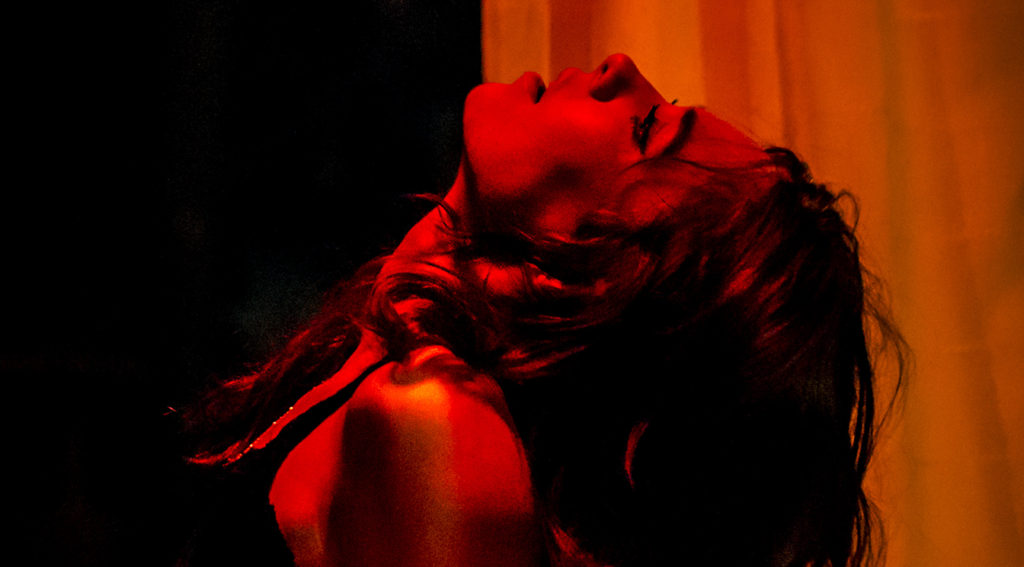
Vanessa Kirby’s Stella is at her best when showing sisterly concern, which she does with consistent skill. Ben Foster’s Stanley is entirely brutal, given none of the glamour sometimes associated with the role. He’s all “animal force”, which makes his final outrage against Blanche (a scene not for the faint hearted) terrifying; the predestination he claims – “We’ve had this date with each other from the beginning” – is chilling. Foster’s performance is stark but fits Andrews’ brutal vision. Violence pervades the show, domestic abuse is taken for granted, and even Blanche’s suitor Mitch moves from having a “sensitive look” to being a threatening presence in a brilliant performance from Corey Johnson.
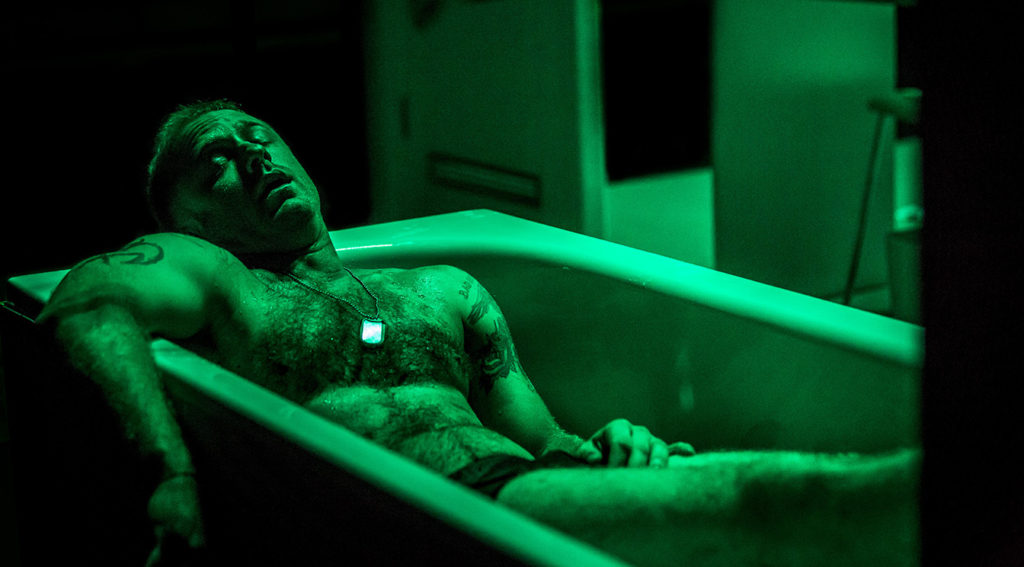
Williams, like his creation Blanche, goes for “strong bold colours”, a preference literally reflected in Jon Clark’s lighting design and one that sums up Andrews’ approach. As the “evasions and ambiguities” Blanche has been living with lead to a total breakdown, there’s the suggestion that Stanley, as with every other man she has encountered, has gaslighted her. It’s a bold and enlightened way of bringing out Williams’ questions of “deliberate cruelty” that make this production even better on a second viewing.
Available until Wednesday 28 May 2020
To support, visit nationaltheatre.org.uk, youngvic.org
Photos by Johan Persson

